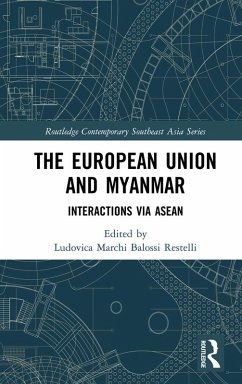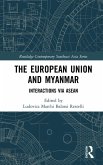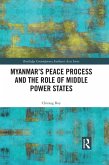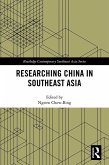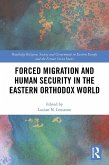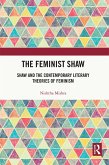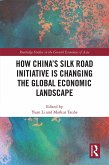Contributors examine the EU's engagement in a process of dynamic consolidation of its relationship with Asia and the Pacific region. They shed light on how interregional relations with ASEAN and interactions with Myanmar can be viewed as a perfect opportunity to promote the EU's presence in the region. Chapters examine the EU's efforts to inspire Myanmar to connect with security cooperation and Myanmar's engagement with the EU to diversify its foreign relations with China. The book also explores the extent to which the EU has failed regarding the Rohingya crisis and whether the EU's effort to support the peace process in Myanmar has been beneficial.
A timely and important contribution to the growing literature on the EU's role in the world and its relations with East and Southeast Asia, this book will be of interest to academics in the field of International Relations, European Politics and Foreign Policy, Comparative Regionalism, East Asian and Southeast Asian Studies.
Dieser Download kann aus rechtlichen Gründen nur mit Rechnungsadresse in A, B, BG, CY, CZ, D, DK, EW, E, FIN, F, GR, HR, H, IRL, I, LT, L, LR, M, NL, PL, P, R, S, SLO, SK ausgeliefert werden.
'Myanmar represents an ancient nation of Buddhism and gold in East Asia in general and military regime in particular. The recent political development of democratization shows a possibility of economic growth and political stability in the nation that would also contribute to strengthening the East Asian region as a whole. Under such circumstance, Dr. Marchi focuses on relationships between the European Union and Myanmar particularly via ASEAN. The book explores comprehensive issues on Myanmar including diplomacy, economics, politics, development strategies, regional competition of global actors etc. It also analyses the European Union's economic, diplomatic and political interest particularly in the Southeast Asian sphere due to its historical heritage of the colonization era, and envisages its further engagement in order to play EU's roles as a global competitor in the region. Consequently, it is noteworthy to read the book and extend intellectual horizon beyond the government of Myanmar and the diplomacy of the EU'. - Sang Chul Park, Professor at Graduate School of Knowledge based Technology and Energy, Korea Polytechnic University, Seoul, Republic of Korea

